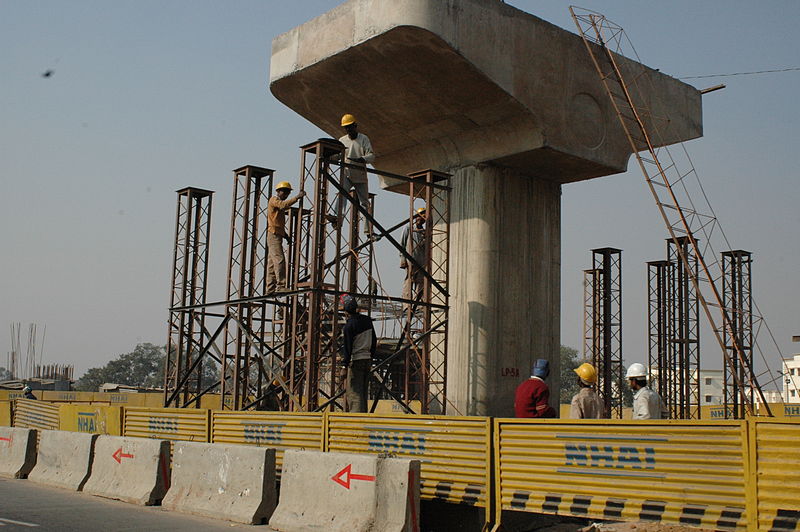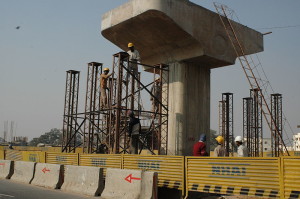In a recent judgment, the Supreme Court gave implied validity to the retrospective provisions under 2013 Act which allow land acquisitions made under the 1894 Act to lapse under certain conditions.
Land acquisition is a contentious and critical issue which has huge impact on the society and the people. In India, there had been incidences of societal and political protests and led to huge law and order problems on instances of land acquisition done for large infrastructural projects and land acquisition done on behalf of private entities. Land acquisition process has been delayed due to protests and lengthy litigation, most of which have aroused due to unsatisfactory compensation provided under the Act to the land owners. Moreover, under the 1894 Act, the interests of persons whose livelihood is attached to such land, like sharecroppers, land labourers were not taken into account.
Due to the changed socio-political scenario in the country, the Right to Fair Compensation and Transparency in Land Acquisition, Rehabilitation and Resettlement Act, 2013, was passed by the Parliament to provide increased compensation to the land owners and also provide for compulsory rehabilitation and resettlement for the land owners and livelihood earners from the land. The Act has made substantial changes to the process of land acquisition including conducting of a mandatory “Social Impact Assessment”, compulsory consent of 80 % of the land owners where the land will be acquired for private companies and bar on acquisition of irrigated multi-cropped lands except in exceptional situations. The land acquisition process will be more lengthy and costly under the new Act, making it difficult for private companies who want large patches of land for establishing their factories and manufacturing units.
What will happen to the ongoing land acquisition processes under the 1894 Act?
The 2013 Act came into force from 1 January 2014 repealing the 1894 Act. The crucial question that might be in mind of many that what will happen to the ongoing land acquisition processes. Will they lapse? There might be situation where the award has been made but the same was not accepted by the land owners. What will happen to such land acquisition process? Will it be considered that the land acquisition process has completed under the 1894 Act or they lapse as well?
To avoid such confusion, Parliament has added a separate provision to deal with such cases. Section 24 of the 2013 Act deals with validity of ongoing land acquisition processes under the 1894 Act. The Section states the following conditions:
i) Where no award has been made under the existing Act, then the provisions related to determination of compensation, rehabilitation and resettlement under the 2013 Act will be applied.
ii) Where award has been made under the existing Act, then the provisions of the 1894 Act will apply as if the 1894 Act has not been repealed
The subsection 2 of Section 24 also states that in case where the award for acquisition of a particular land has been made atleast 5 years before the commencement of the 2013 Act and the physical possession of the land has not been taken or the compensation has not been paid, in such cases the land acquisition made under 1894 Act will deemed to have lapsed and the fresh land acquisition process need to be initiated under the 2013 Act, if the Government still want to acquire the land. Moreover, in a situation where a majority of land owner has not accepted the compensation given, all the beneficiaries of the land acquisition process will be compensated according the 2013 Act.
Supreme Court and its interpretation
On 24 January 2014, just 23 days after the notification of the 2013 Act, the Supreme Court delivered the first judgment under the Right to Fair Compensation and Transparency in Land Acquisition, Rehabilitation and Resettlement Act, 2013, giving implied validity to the provisions which allowed retrospective application of the compensation, rehabilitation and resettlement provisions to ongoing land acquisition processes under the old Act.[1]
The case dealt with acquisition of land for creating forest garden by Pune Municipal Corporation, wherein a notice for acquisition of land under Section 4 of the 1894 Act was made in 2004 and the award for the acquisition of land was made under Section 11 of 1894 Act on 31.01.2008 by the Special Land Acquisition Officer. Subsequently, notices were sent to the land owners to receive the compensation, but it was not accepted by the land owners and the entire award was deposited in the government treasury. The award was challenged before the Bombay High Court by the landowners on grounds of certain procedural lapses, including non approval of such acquisition by the general body of the corporation and non-compliances with the provision of Section 7 and 5A of the 1894 Act. The High Court upheld the contention of the land owners and quashed the land acquisition proceedings and ordered to return the land to the land owners.
The Court clarified the meaning of the expression “compensation has not been paid” in Section 24(2) of the 2013 Act to mean that compensation has not been paid in accordance with the procedure laid down in the Section 31 of the 1894 Act. Under Section 31, the amount can be either paid directly to the entitled persons or in case the amount cannot be paid as i) the affected person is unwilling to accept the compensation, ii) there is no person competent to alienate the land and (iii) there is dispute as to the title to receive compensation or as to the apportionment of it, the award amount need to be deposited by the Collector in the Court to which a reference under Section 18 can be made.
The Court also stated that the 1894 Act being an expropriatory legislation, the procedures mentioned under the Act has to be strictly followed. The Court held that as the award was made more than 5 years ago and the amount deposited in the government treasury cannot be equated with amount paid to the land owners in a manner as specified under section 31 of the 1894 Act and thus the land acquisition process is deemed to have lapsed.
How it might affect the infrastructural development in the country?
The 2013 Act has been drafted keeping in mind the sentiment of people and as a populist measure. No doubt the Act has replaced a draconian law which allowed acquisition of land for a very nominal amount with a more benevolent Act which provides the land owners with adequate compensation.
Infrastructural projects worth more than 7 lakh crore rupees are already struck due to governmental clearance and red-tapism under the old Act. The 2013 Act might affect the infrastructural development in India in a larger manner, which has more complicated and lengthier acquisition process which might delay existing approved projects. Provisions like “social impact assessment”, where gram sabhas will be involved might delay projects and increase red tapism. Having such cumbersome provisions might increase lengthy litigations which will inturn delay protects and increase costs.
India is looking to develop new “Smart” cities, for which the government need huge patches of land. Most of these cities are expected to be developed in PPP mode, and for acquisition of land for PPP projects needs consent and approval of 70 % of the land owners. Getting consent from such a huge majority might be impossible in many cases, and might led to abandonment of such projects which is expected to benefit a large number of people. Moreover, the new Act provides for providing a compensation amount of four times the current market value in rural areas and twice the market price in urban areas along with rehabilitation and resettlement benefits might increase the cost of projects. In case of group housing or planned development of cities, which are developed to house a large number of people at affordable price, might not be affordable for a common man as the overall cost of the project will increase due to increased cost of land.
This Act might affect the manufacturing industries in a significant manner, as the new Act requires consent of 80 % of the land owners for acquiring land for private purposes. Manufacturing units needs large tracts of land and acquiring such large amount of land might be a problem. Recent protests in Nandigram and Singur in West Bengal, Kalinganagar in Odisha and other parts of India due to acquisition of land for private purposes have made it evident that getting consent of 80% of the land owners might be difficult if not impossible for manufacturers to set up a plant.
Considering the retrospective provision which has been given implied validity by the Supreme Court, there is a chance of increase project costs and delays arising due to further litigation for application of the new provisions to the ongoing acquisition processes. Moreover the provision states that in case the award for acquisition of a particular land has been made atleast 5 years before the commencement of the 2013 Act and the physical possession of the land has not been taken, the land acquisition will considered to have lapsed and new proceeding under the 2013 Act has to be initiated, might again cause significant project delays and increased costs.
 Serato DJ Crack 2025Serato DJ PRO Crack
Serato DJ Crack 2025Serato DJ PRO Crack











 Allow notifications
Allow notifications



PLEASE PROVIDE MORE JUDGEMENTS ON THE RIGHT TO FAIR COMPENSATION IN LAND ACQUISITION REHABILITATION AND RESETTLEMENT ACT 2013